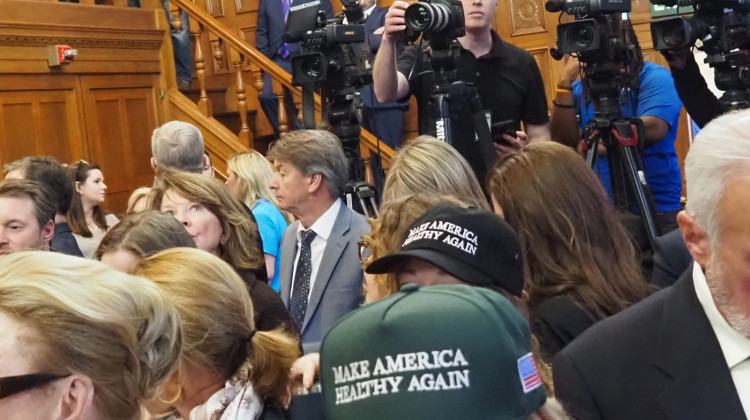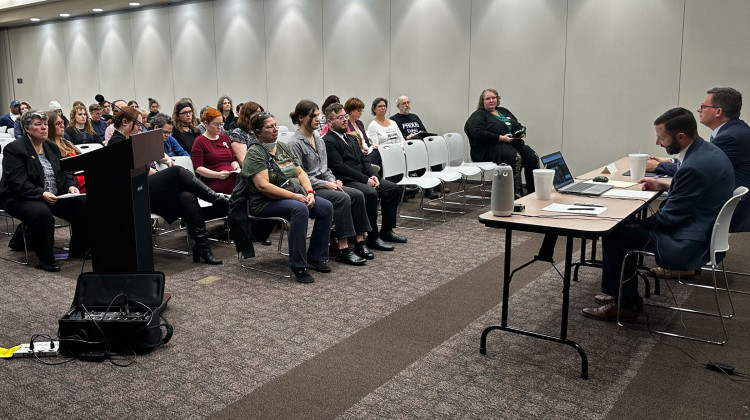
The Comprehensive Addiction and Recovery Act was signed into law earlier this month, but Congress still needs to approve the funding.
Macieklew, CC-BY-SA-4.0WEST LAFAYETTE -- A new piece of legislation to address the country’s addiction to opioid painkillers still has a big hurdle to clear before that money comes to Indiana.
Earlier this month the president signed into law the Comprehensive Addiction and Recovery Act, or CARA, but critics have said the bill is all bark and no bite.
The legislation opens up $181 million for states to fund treatment and education programs and expand access to the overdose-reversal drug naloxone, but it still has to be approved separately when Congress convenes later this fall.
Healthcare lobbyist Al Guida said a lame-duck session could make that difficult.
“I don’t know whether that’s going to happen,” he said. “And if someone told you they knew that they would know that would happen, then they wouldn’t know what they were talking about.”
Guida said it wouldn’t be unheard of, especially in an election year, for the bill to have trouble securing funding.
“There are many, many instances in which Congress creates authorization for a program in a separate legislative process that oftentimes don’t attract federal financing unfortunately,” Guida said.
Sen. Joe Donnelly said he’s hopeful funding will be approved by Congress this fall.
The White House originally asked for $1 billion to fund the bill. After a back-and-forth between the House and Senate, the final amount was only 20 percent of what President Obama had wanted.
Donnelly said even though he’s disappointed by the significantly smaller amount in CARA’s final version, some action was better than none.
“You have to get other legislators to agree with you on that, and that was a bit of a challenge,” he said. “And what we thought is it makes sense to start to move the ball down the field and get some of these things in place.”
He said there are other provisions, such as a program providing information about best prescribing practices for pain meds, that can make a difference without money.
“Instead of a prescription, you know, for an injured shoulder containing 40 pills, maybe it will contain 10,” he said.
Guida said there are other addiction solutions that exist independent of CARA. For example, in its proposed 2017 budget, the House has proposed a $500 million block-grant program dedicated to opioid addiction treatment.
 DONATE
DONATE








 Support WFYI. We can't do it without you.
Support WFYI. We can't do it without you.